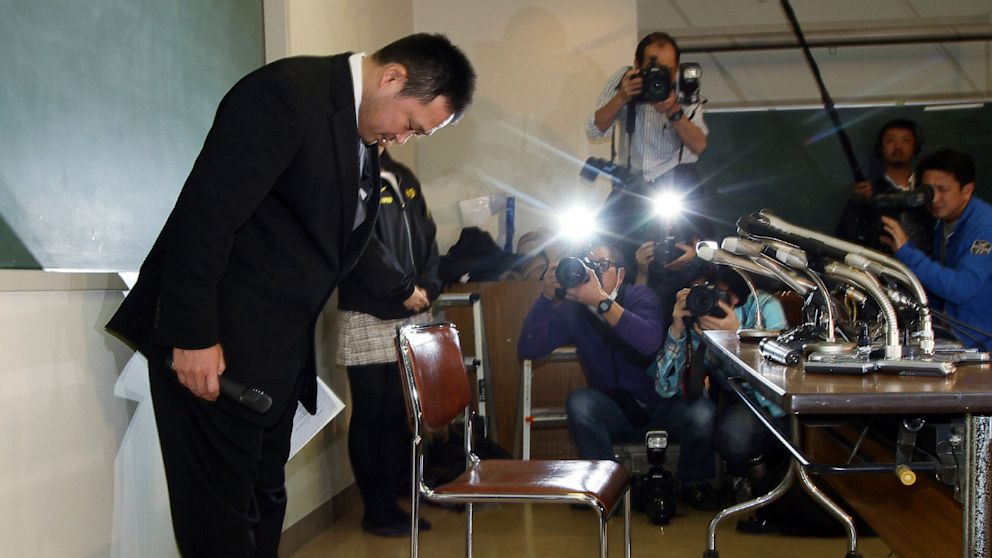Japan's Coaching Abuse Problem Surfaces Through Viral Video
Japanese Athletics Has a Violence Problem

Sept. 20, 2013— -- A 16-second YouTube video features a high-school teenage boy being slapped in the face 13 times. The boy, a volleyball player, is being slapped by his coach while his teammates watch on in silence. "Don’t joke around, kid!" the coach yells. "Do you understand? You’re stupid!" The video, filmed by one of the team’s players, was released yesterday and already has over 2 million YouTube views.
The thing is, the video is far from a one-time case of violence in Japanese sports. It actually represents a dangerous cultural trend, one that has killed athletes. Japan has publicly discussed it and made a commitment to combat earlier this year.
Still, Japanese sport culture has a storied history of corporal punishment, taibatsu in Japanese, which literally translates to "physical punishment" though like words in any language has a constantly evolving meaning. The practice has been prevalent in Japan schools and sports despite being outlawed in the country’s schools after World War II (taibatsu remains legal in Japanese homes). It's also left lasting scars on athletes.
Most recently, coinciding with Tokyo’s bid for and win of the 2020 Summer Olympics, psychical abuse in Japanese sports have gained particular prominent media attention. A Japanese teenager committed suicide linked to taibatsu in December 2012. The teenage boy killed himself after being struck 41 times in one day by his high school basketball coach in Osaka. His name was never released.
Only months later, in February 2013, Japan’s national women’s judo coach and former Olympian Ryuji Sonoda resigned after allegations that he beat his athletes with a bamboo sword, kicked them, pushed their breasts, called them "ugly" and told them "to die." At his resignation, Sonoda admitted the claims were "more or less true."
"The incident is the gravest crisis in Japan’s sporting history," Japan’s education minister Hakubun Shimomura told reporters at a press conference in response to the women's judo coach scandal. "This is the time that Japan can show both to those inside and outside the country that it has abandoned all violence in sports."
And just last week, Japanese world judo champion Shohei Ono, along with 11 of his teammates at Tenri University, were suspended for beating freshmen members of the school’s judo program. "I deeply regret what I’ve done," Ono said through a statement. "I apologize for my actions, especially with the All Japan Judo Federation trying to crack down on physical abuse in the sport."






